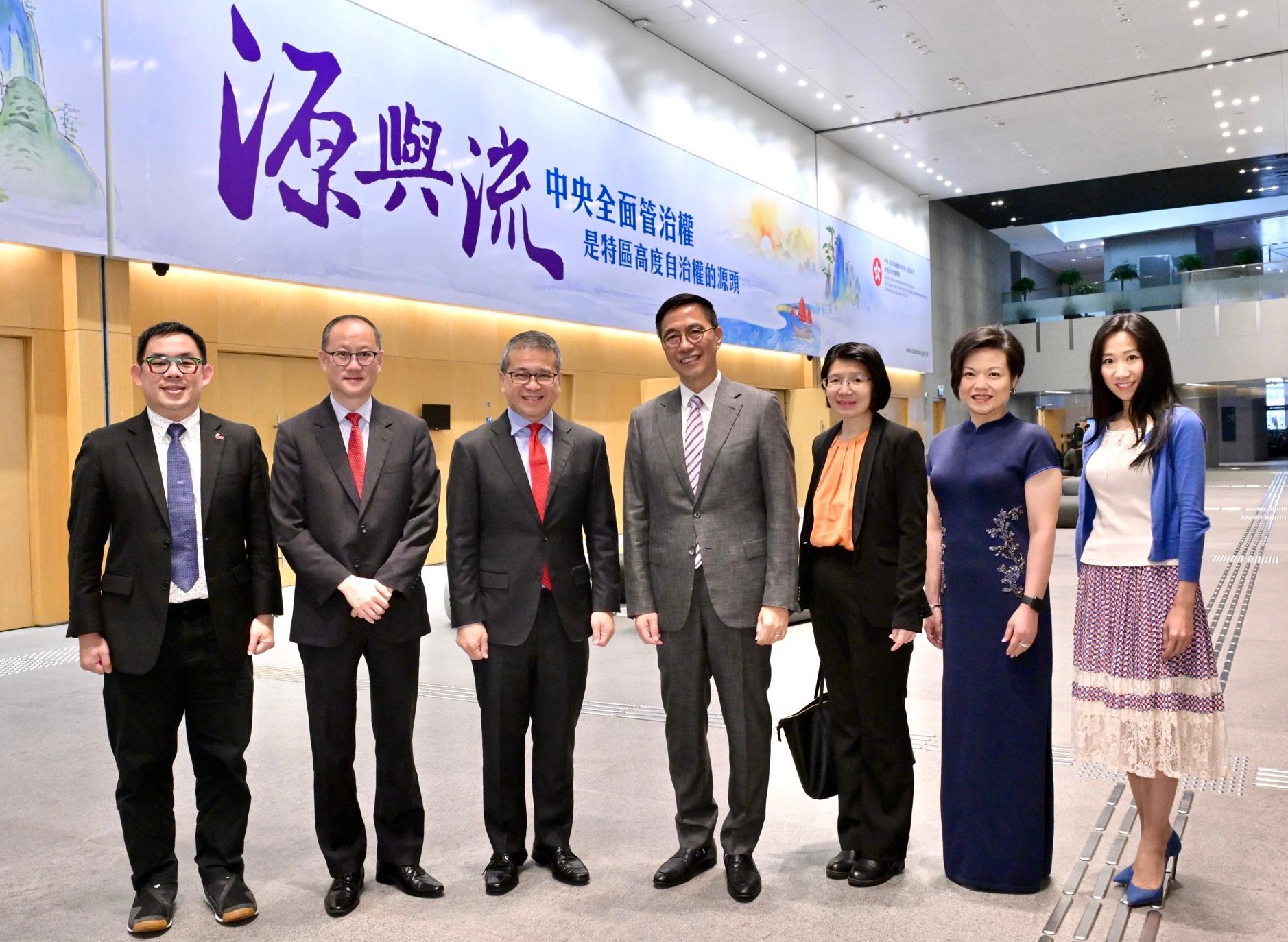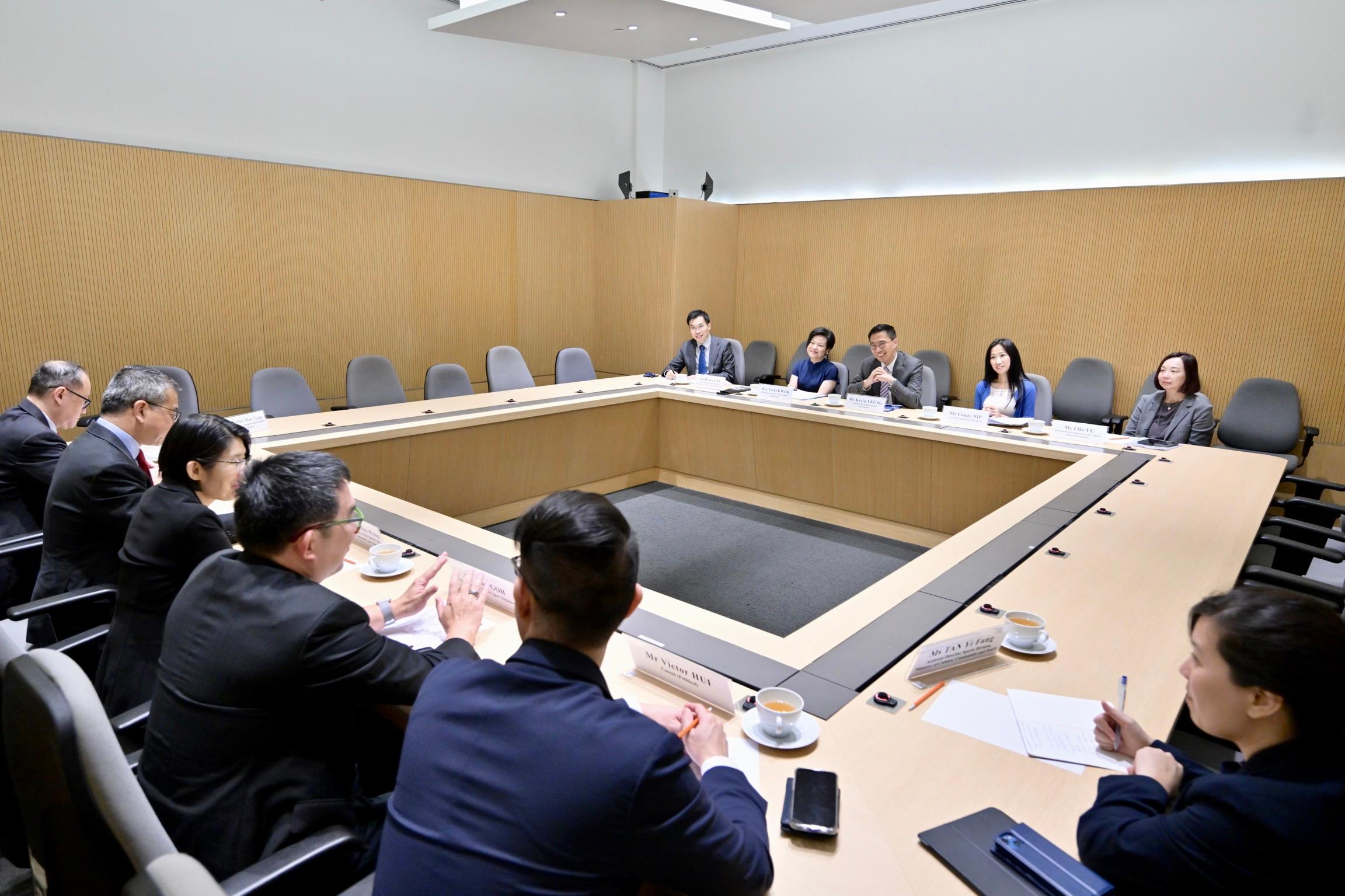Following is a question by the Hon Elizabeth Quat and a written reply by the Secretary for Health, Professor Lo Chung-mau, in the Legislative Council today (March 27):
Question:
There are views that with the worsening of population ageing in Hong Kong, the number of patients with dementia (especially Alzheimer's disease (AD)) may continue to increase. In addition, some surveys conducted in recent years have pointed out that there is a downward trend of AD patients' ages, and early screening can effectively prevent and delay the disease, help patients maintain a healthy life as well as effectively reduce the burden on patients' families and the resources invested by society. In this connection, will the Government inform this Council:
(1) of the number of confirmed AD patients in Hong Kong in the past five years, with a breakdown by age group and gender; the percentages of the numbers of AD patients in different age groups in their respective populations;
(2) whether it has compiled statistics on the medical expenses incurred by the Government on the provision of services such as treatment and nursing care to each AD patient on average each year; if so, of a breakdown by expenditure item;
(3) given that the current means of diagnosing AD include clinical trial and observation, conducting magnetic resonance imaging and harvesting bone marrow for testing, and it is learnt that a local research team has successfully developed a simple and effective blood test technology that can accurately detect early-stage AD, whether the Government will study the inclusion of such blood test in the scope of routine testing of public hospitals to shorten the time required for diagnosing AD;
(4) as there are views that the general public do not have sufficient awareness of AD and are prone to mistake the relevant symptoms as mere normal ageing phenomena and ignore them, resulting in patients missing the timing for early treatment, of the Government's plans to step up publicity and education to strengthen public awareness of AD; and
(5) of the measures in place to step up efforts to promote AD-related work on testing, scientific research on drugs and the transformation of scientific research achievements, as well as the details of such measures?
Reply:
President,
The reply to the question raised by the Hon Elizabeth Quat is as follows:
(1) Alzheimer's disease belongs to the spectrum of dementia which covers various types of diseases. The Hospital Authority (HA)'s healthcare professional team assesses the conditions and needs of all dementia patients with a multi-disciplinary approach, and provides necessary pharmacological and non-pharmacological treatment and follow-up to patients as appropriate to slow down the process of brain degeneration and alleviate the symptoms. The HA collects statistics on the number of dementia patients based on their inpatient and out-patient disease codes and medication records. As the same type of drug can be used on patients with different types of dementia (including Alzheimer's disease), and the complexity and diversity of diagnosis as well as management of Alzheimer's disease requires long-term clinical follow-up on cases and professional judgment, the HA system currently maintains the overall number of patients with dementia and is not able to provide an accurate breakdown on the number of patients with Alzheimer's disease.
The number of patients with dementia receiving treatment in the HA in the past five years, with breakdown by age group and gender, is at Annex 1.
(2) Dementia patients commonly suffer from multiple chronic diseases such as hypertension, diabetes mellitus, cardiovascular diseases, as well as physical deterioration such as memory loss, falls, and continence problem. To flexibly deploy resources, the HA will refer patients to different specialist out-patient clinics of the HA, including medicine, geriatric, psychogeriatric and memory clinic, according to their needs, allowing patients to receive joint consultation and treatment. For example, the geriatric team simultaneously provides services to patients with dementia, including Alzheimer's disease, who are also suffering from other geriatric conditions, while the psychogeriatric team is responsible for supporting dementia patients with severe behavioural and psychological symptoms of dementia. As patients with dementia, including Alzheimer's disease, often require services from different specialist out-patient clinics, the healthcare expenditure arising from the provision of treatment and care services to such patients cannot be separately quantified. The cost incurred for the medical services provided by the HA to patients aged 65 or above in the past three years is at Annex 2.
(3) Dementia, including Alzheimer's disease, is a disease caused by a decline in brain function due to neurological changes. Since the loss of brain function is irreversible, early pharmacological and non-pharmacological support (e.g. reminiscence, multi-sensory and cognitive training, etc) can slow down the process of brain degeneration and alleviate the symptoms.
The HA provides laboratory testing services to support clinical diagnosis and monitoring of various diseases by various clinical specialties. When introducing new laboratory testing services, the HA will consider relevant factors such as clinical benefits, the safety and efficacy of the new technology, the availability of manpower and expertise, the capacity and technical adaptability of the laboratory. The HA is exploring the feasibility of introducing the relevant blood test and will consider introducing the laboratory testing service through the established mechanism in due course.
(4) The Government spares no effort in the promotion and public education of Alzheimer's disease towards the public. The Department of Health has all along been committed to the publicity and education of dementia, including Alzheimer's disease, and has been providing latest health information through various channels, including the Elderly Health Service website, the Elderly Health Information Hotline, education kit for elderly carers, online videos, media interviews, the Elderly Health Service Newsletter and health talks to enhance public understanding of the disease and provide family members of dementia patients and carers of the elderly with practical skills and insights in managing diseases. In addition, the HA has been implementing various health promotion activities, including organising educational talks and publishing pamphlets, to raise community awareness towards dementia, including Alzheimer's disease.
The Social Welfare Department (SWD) launched a territory-wide public education campaign Dementia Friendly Community Campaign from September 2018 to March 2023 to enhance public understanding of dementia, including Alzheimer's disease, and to encourage the community to show care and take action to support dementia patients and their carers. The SWD has also allocated additional programme resources to all District Elderly Community Centres and Neighbourhood Elderly Centres in Hong Kong to organise educational activities at district or neighbourhood level to raise public awareness of dementia.
(5) Dementia, including Alzheimer's disease, is a disease caused by a decline in brain function due to neurological changes. At present, there is no cure for dementia. Patients can slow down the degenerative process of the brain and alleviate the symptoms with pharmacological and non-pharmacological support (e.g. reminiscence, multi-sensory and cognitive training, etc).
It was announced in "The Chief Executive's 2023 Policy Address" that the Government would spare no effort bolstering the development of medical innovation, which can bring the benefits of good drugs and research and development (R&D) to patients in Hong Kong. We will encourage innovative R&D of advanced and effective new drugs in Hong Kong, and adopt measures to promote the transformation of innovative technologies into clinical applications to benefit more patients.
The Government will enhance the current evaluation and registration mechanism for drugs, and establish an internationally renowned regulatory authority of drugs and medical devices. Specifically, the Government will leverage medical strengths of the Hong Kong Special Administrative Region (HKSAR) in a more proactive and efficient manner, and establish the Hong Kong Centre for Medical Products Regulation, to implement the long-term objective of establishing an authority that registers drugs and medical devices under the "primary evaluation" approach, i.e. to directly evaluate drugs and medical devices in Hong Kong based on clinical trial data. This will help accelerate the clinical use of new drugs and medical devices, and drive the development of industries relating to the R&D and clinical testing of medical products.
At the same time, the Government plans to set up the Greater Bay Area International Clinical Trial Institute to provide a one-stop clinical trial support platform for biomedical and research institutions, to co-ordinate clinical trial resources in the public and private healthcare sectors in the HKSAR, and to further enhance the development of clinical trials, which will complement the development of the "primary evaluation" mechanism.
The above measures will help provide better pharmacological support to different groups of patients in Hong Kong, including those suffering from dementia and amongst which, Alzheimer's disease. The Government will continue to closely monitor the latest developments in the diagnosis and treatment of dementia, including Alzheimer's disease, with a view to providing appropriate care to the patients concerned.

